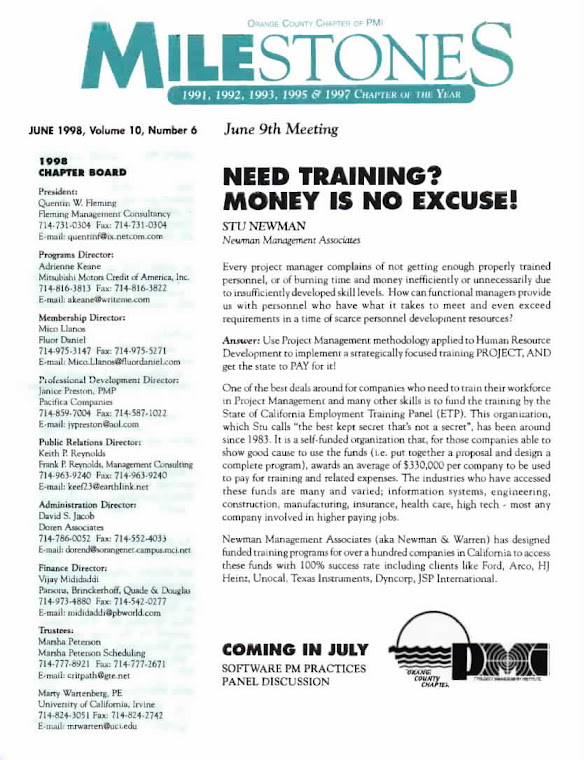| Summary of Major changes – Harmonization with other foundational standards (Ch. 1-2); consistent terminology – Ch.3 (“the standard”) moved to an annex – New knowledge area: Stakeholder Management (ch.13) – Four Planning Processes were added: Plan Scope Management, Plan Schedule Management, Plan Cost Management and Plan Stakeholder Management. (This change brings back the Scope Planning process from the Third Edition and adds three new planning processes.) - The number of processes is now 47 vs 42 (in PMBOK 4). http://newmanagestrat.blogspot.com/2012/11/reminder-upcoming-5th-ed-pmbok.html http://newmanagestrat.blogspot.com/2012/11/reminder-upcoming-5th-ed-pmbok.html |
|||
Sunday, December 23, 2012
PMBOK 5 and PMP Exam
PMI is
scheduled to publish the 5th Edition of the PMBOK® Guide on Jan 1,
2013. Aug 1, 2013 is the scheduled date for when the Project
Management Professional (PMP)® changes to
PMBOK 5.
Thursday, November 15, 2012
Reminder - upcoming 5th Ed. PMBOK
Most of you have heard that the 5th ed. of the PMBOKtm is scheduled for release around the end of this year, and that the PMPtm exam will likely reflect the 5th ed. sometime in the 3rd quarter of 2013 (note that both timeframes are subject to change). Below are two of the major highlights of the upcoming edition (again, all subject to change):
• Traditional 5 major process groups of Initiating, Planning Executing, Monitoring and Controlling, and Closing are unchanged.
• 47 processes are in the 5th edition PMBOK draft, representing a 12% increase.
- Typically when editions change and when the new exam reflects those changes often period of "calibration" occurs, so I generally advise prospective test takers to either do the exam prior to a change, or wait a few months until after a new change is implemented...so plan accordingly...
• Traditional 5 major process groups of Initiating, Planning Executing, Monitoring and Controlling, and Closing are unchanged.
• 47 processes are in the 5th edition PMBOK draft, representing a 12% increase.
- Typically when editions change and when the new exam reflects those changes often period of "calibration" occurs, so I generally advise prospective test takers to either do the exam prior to a change, or wait a few months until after a new change is implemented...so plan accordingly...
Subscribe to:
Comments (Atom)



